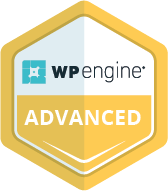WordPress is a very intuitive, easy-to-use content management system, which has led it to become quite popular. Originally, only blogs tended to install WordPress – a pedigree that continues to define how WordPress’s admin panel looks and operates – but many other types of websites have begun to use the CMS due to how simple it is to add new content. Many online businesses, for example, build and update their site using WordPress. And, luckily, there are plenty of WordPress compatible plug-ins to help them to optimize their site and increase traffic.
W3 Total Cache
W3 Total Cache helps optimize the performance of your site by caching browser and page data, along with compressing databases. What this winds up doing is helping your website to continue to load quickly, even during sudden bursts in traffic. Oftentimes you may not even realize that your site is running slowly, which makes a caching tool like W3 all the more important – the last thing you want is for your customers to close your page because it is taking too long to load. This plug-in is also extremely easy to set-up and doesn’t require that you re-program anything. Now if you’re using WP Engine like we are, then you don’t need this plugin! 😉
The All-in-One SEO Pack
SEO is one of the most important parts of running an online business. Obviously, if no one can find your company, you aren’t going to make any money. All-in-One SEO plug-in is an excellent SEO analysis and monitoring tool. It is also one of the only SEO plug-ins that integrates with eCommerce sites, making it invaluable to online stores. If you have a bit of talent for programming, you can even customize and fine-tune the plug-in so it does exactly what you need it to. If you don’t, no worries – the plug-in automatically fixes titles and generates meta-tags so that your site is search engine friendly.
Disqus
Speaking of SEO, one the best ways to bump up your site in search engine results is to maintain some sort of blog. Blogs allow you to put consistent, fresh, relevant, well-written content onto your site, without having to constantly re-write your home page or product descriptions. WordPress was built for blogging, so incorporating a blog into your WordPress site is a snap. However, WordPress’s native commenting system is a bit lacking, and if you want customers to engage with your business and your posts, you should install Disqus – a comment system that, along with seamlessly integrating with WordPress’s own comment platform, comes with a diverse set of very powerful monitoring, spam reduction, and moderation tools. It also has a very nice looking user interface!
nRelate
It would be a gross oversight not to mention nRelate when discussing blogging. nRelate is an awesome tool that allows users to attach columns that display related content according to whatever the post is about. For the business that uses its blog for SEO and consumer outreach, an intuitive, well built content plugging system means that customers will spend more time on your site, and more of your articles will be read. Nearly everything is automated as well, as nRelate uses its own RSS feed to track when new content is posted. The designers and hosts of the nRelate plug-in even use their own servers to analyze and index content, which means your site won’t wind up being bogged down by resource hogging plug-ins.
Google Analytics for WordPress
No online business worth its salt can ignore Google Analytics. It is an amazingly useful tool for analyzing site traffic, and helps you to organize and generate new content accordingly. In fact it has a load of features that, oftentimes, go unused. This plugin, Google Analytics for WordPress, was designed to fix that problem by making it extremely easy to track information that, normally, Google Analytics would not display – information like outbound clicks, or downloads. This plug-in also makes it easy to track custom variables and to store the resulting data, allowing for long-term analyses.
Though WordPress is a great content management system, it does occasionally need a little help. The plug-in community for WordPress is happily thriving, which means that, if you have a problem, there is a probably a plug-in to help address it. However, any website or online business that hopes to be successful needs, at least, the above five plug-ins to help optimize the site and boost SEO. After that, it is up to you to explore the ever-expanding catalogue of WordPress plug-ins!












